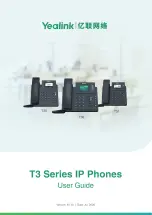
right page (7)
of A75_Libra, fcc, us-en, (30.05.2005, 10:36)
© Sieme
ns
A
G
200
4,
C:
\S
iemen
s\
D
TP-S
atz\
Pro
dukte
\A
75_L
ibra_
2\o
ut
put
\S
U
G
\A
75_
Libra
_FCC
_us-
7
Safety precautions
VA
R
Langu
age:
am;
V
A
R issue dat
e:
0503
24
Blasting areas
To avoid interfering with blasting opera-
tions, turn your phone OFF when in a
“blasting area” or in areas posted: “Turn
off two-way radio.” Obey all signs and in-
structions.
Potentially explosive atmospheres
Turn your phone OFF when in any area with
a potentially explosive atmosphere and
obey all signs and instructions. Sparks in
such areas could cause an explosion or fire
resulting in bodily injury or even death.
Areas with a potentially explosive atmo-
sphere are often but not always clearly
marked. They include: fueling areas such
as gasoline stations; below deck on boats;
fuel or chemical transfer or storage facili-
ties; vehicles using liquefied petroleum
gas (such as propane or butane); areas
where the air contains chemicals or parti-
cles, such as grain, dust or metal pow-
ders; and any other area where you
would normally be advised to turn off
your vehicle engine.
Emergency calls (SOS)
Your wireless phone can be used to make
emergency calls. You can make an emer-
gency call from the main display screen.
Enter the local emergency number such
as 911 and then press the
A
key.
This phone, like any wireless phone, oper-
ates using radio signals, wireless and
landline networks, and user-pro-
grammed functions. Because of this, con-
nections in all conditions cannot be guar-
anteed. Therefore, you should never rely
solely on any wireless phone for essential
communications (for example, medical
emergencies). Remember – to make or
receive any calls, the phone must be
switched on and be used in a service area
that has adequate signal strength. Emer-
gency calls might not be possible on all
wireless phone networks or when certain
network services or phone features are in
use. Check with local service providers re-
garding their network features.
Always make certain that your phone is
properly charged before attempting any
emergency calls. If you allow your battery
to discharge, you will be unable to receive
or make calls, including emergency calls.
You must then wait a few minutes after
the charging begins to place any
emergency calls.
When making an emergency call,
remember to give all of the necessary in-
formation as accurately as possible. Re-
member that your wireless phone might
be the only means of communication at
the scene of an accident, therefore you
should not terminate the call until given
permission to do so.
Batteries and Chargers
Only use original Siemens batteries
(100% mercury-free) and charging
devices. Use of non-Siemens batteries
and/or charging devices may cause explo-
sion resulting in serious injury and/or
property damage. Use original Siemens
accessories in order to avoid possible
injury and property damage and to
ensure compliance with applicable laws
and regulations. Improper use invalidates
the warranty.
Battery safety precautions
To reduce the risk of fire, injury or electric
shock, and to properly dispose of batter-
ies, please read and understand the fol-
lowing instructions. CONTAINS LITHIUM-
ION OR NICKEL-METAL HYDRIDE BATTERY.
BATTERY MUST BE RECYCLED OR DIS-
POSED OF PROPERLY. DO NOT DISPOSE IN
MUNICIPAL WASTE.
1. Only use the batteries specified for use
with this mobile phone.
2. Do not use batteries of different sizes
or from different manufacturers in this
mobile phone.








































